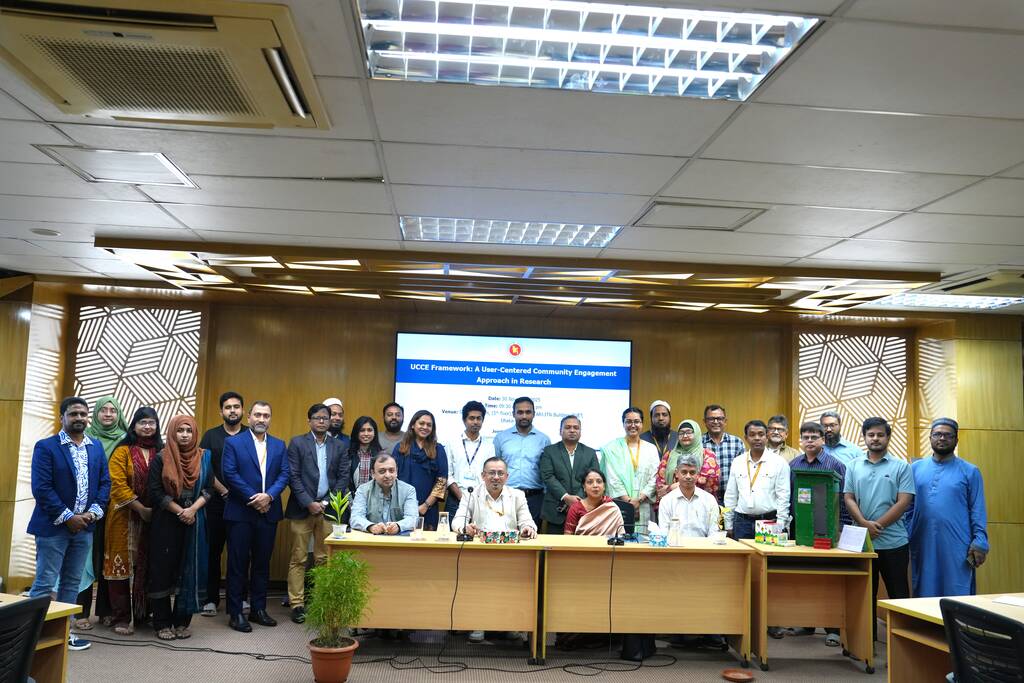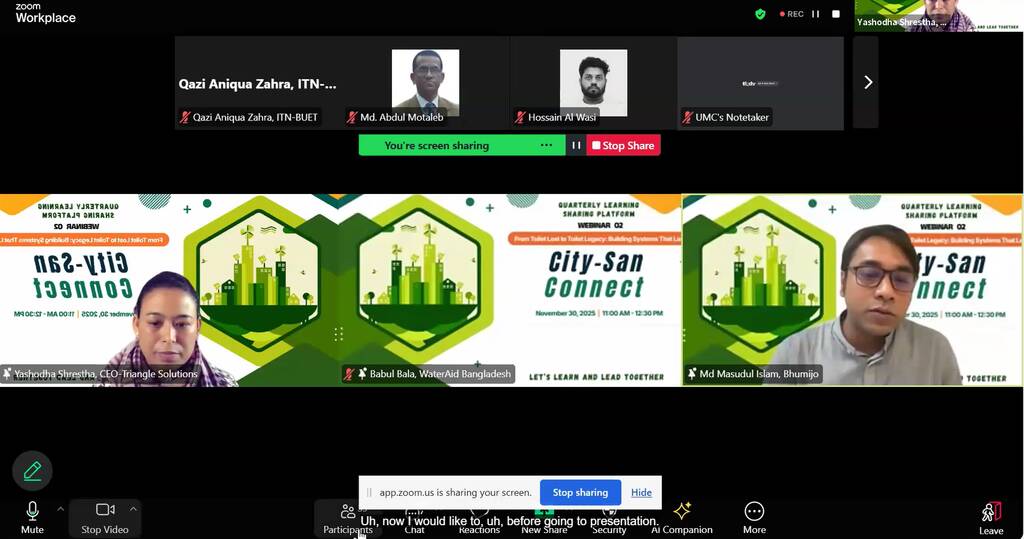Developing inclusive and integrated sanitation and hygiene system in the country is the goal of the ‘Inclusive and Integrated Sanitation & Hygiene Project in 10 Priority Cities in Bangladesh’, which is being implemented by the Department of Public Health Engineering (DPHE). Human resources are vital in delivering the project outcomes effectively and efficiently. To support the cause, International Training Network of Bangladesh University of Engineering and Technology (ITN-BUET), in collaboration with the CWIS-FSM Support Cell of DPHE, organized a Training Needs Assessment workshop on 19 August 2023 for the ten cities under the project.
The primary aim of this workshop was to identify the training priorities and contextual requirements for the ten Paurashavas (municipalities) in Bangladesh. 68 participants from ten cities, including 11 women, attended the assessment. Among them were key figures such as Mayor, Panel Mayor, Women Councilors, Paura Nirbahi Officers, Executive Engineers, Town Planners, Conservancy Officers, and Water and Sanitation Superintendents from these Paurashavas.

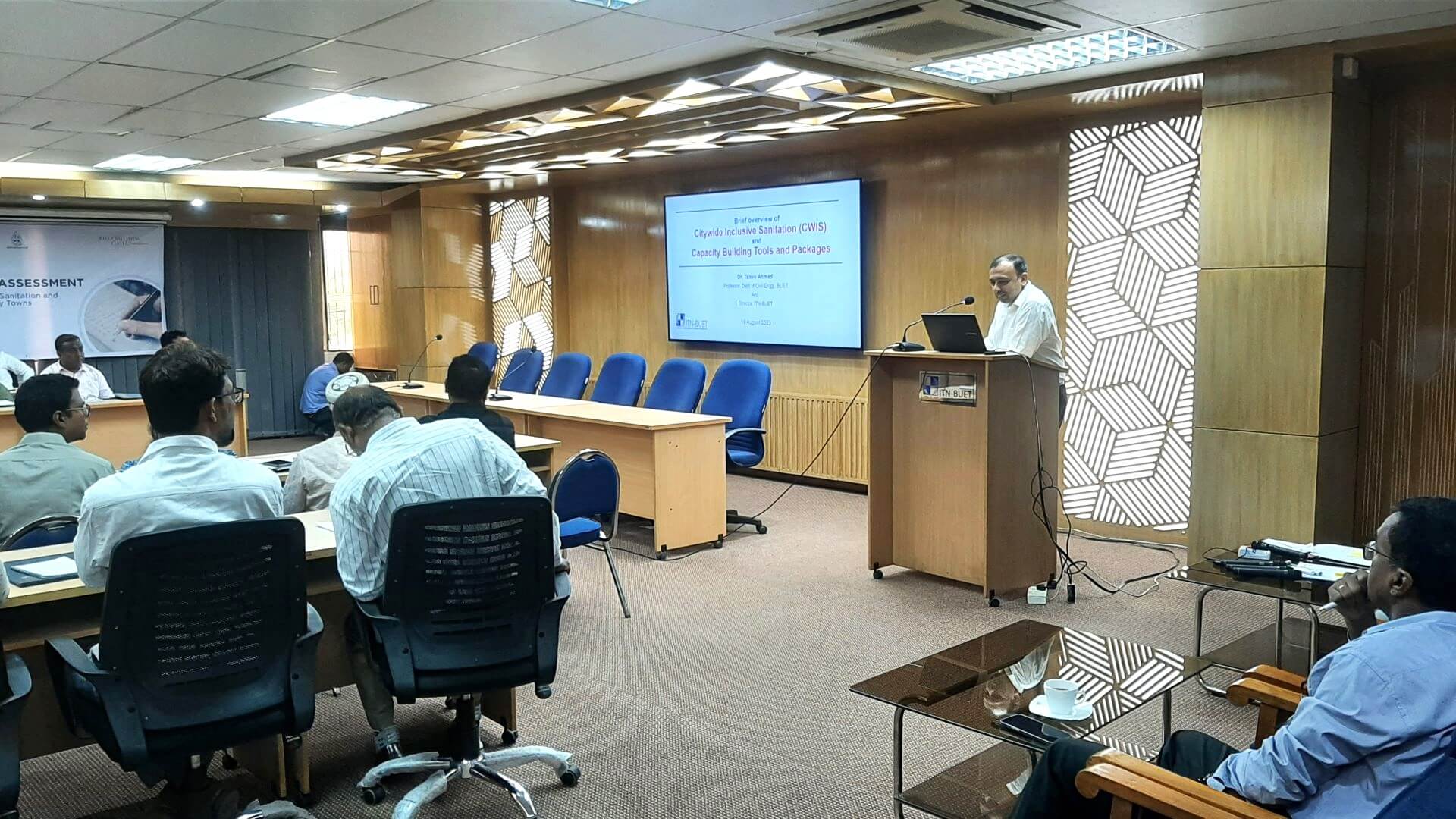
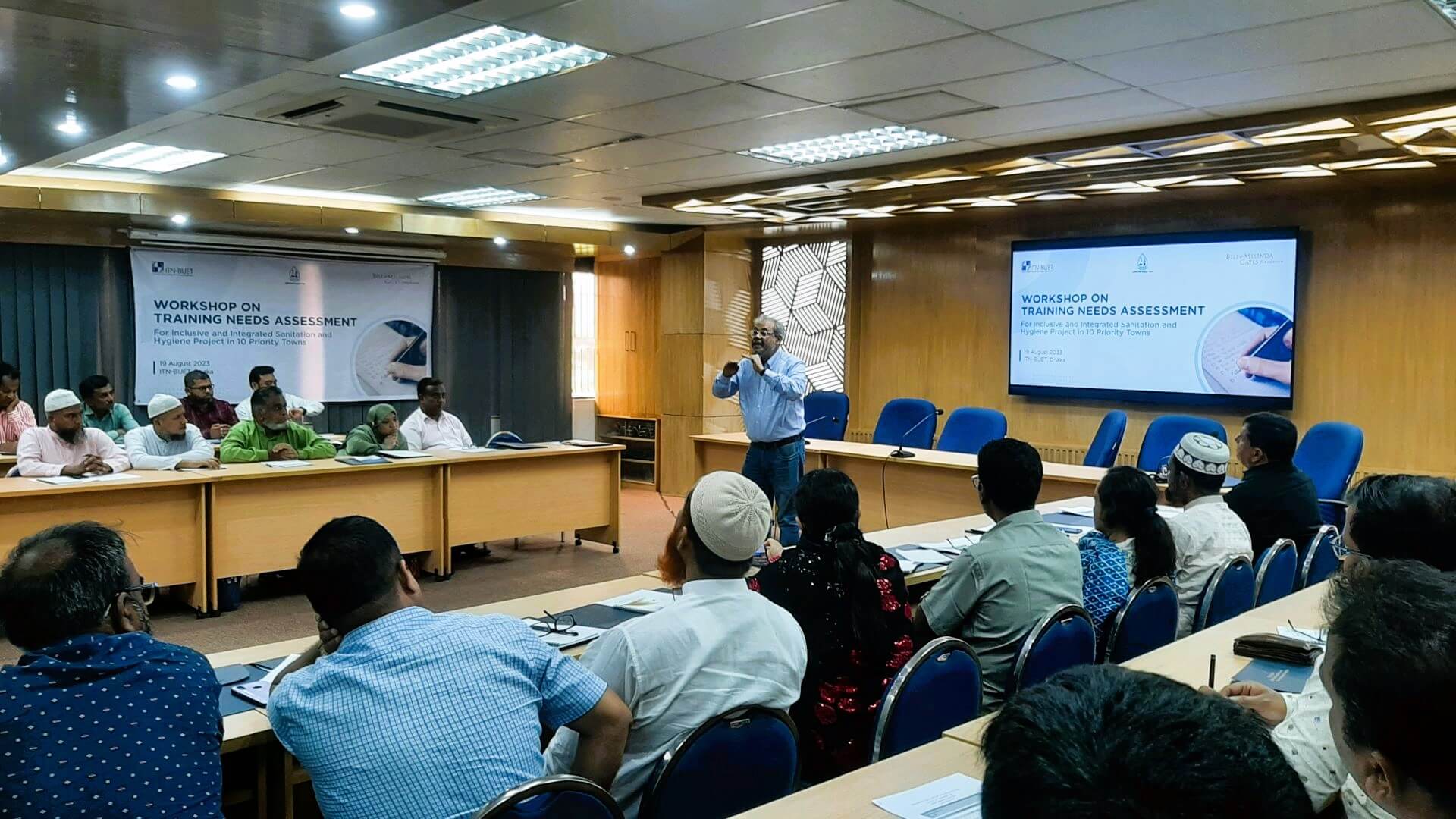
Additional Chief Engineer of DPHE, Mr. Tushar Mohon Shadhu Khan, inaugurated the session by emphasizing the emerging challenge of managing fecal sludge. He highlighted the importance of training in fecal sludge management rather than solely focusing on infrastructure. This proactive approach aims to ensure sustained project success with participants’ engagement from the project’s inception.
During the welcome address, the director of ITN-BUET, Prof. Dr. Tanvir Ahmed, emphasized the need for a comprehensive and timely fecal sludge management system in Paurashavas. He highlighted that effective management is crucial to safeguard public health, considering fecal sludge’s hazardous nature. Prof. Ahmed stressed the importance of training sanitation workers to handle fecal sludge in adherence to standard safety protocols.
As a special guest, the Mayor of Nilphamari Paurashava and President of the Municipal Association of Bangladesh, Mr. Dewan Kamal Ahmed, highlighted the importance of achieving SDG 6 through safe and sustainable sanitation in the Paurashavas. He expressed gratitude for the project’s inclusion of these ten Paurashavas and acknowledged the privilege it brings. Mr. Ahmed mentioned the existing Fecal Sludge Treatment Plant (FSTP) in his Paurashava and stressed the need for technical knowledge to ensure effective management. He also looked forward to the assessment of management needs for such FSTPs.
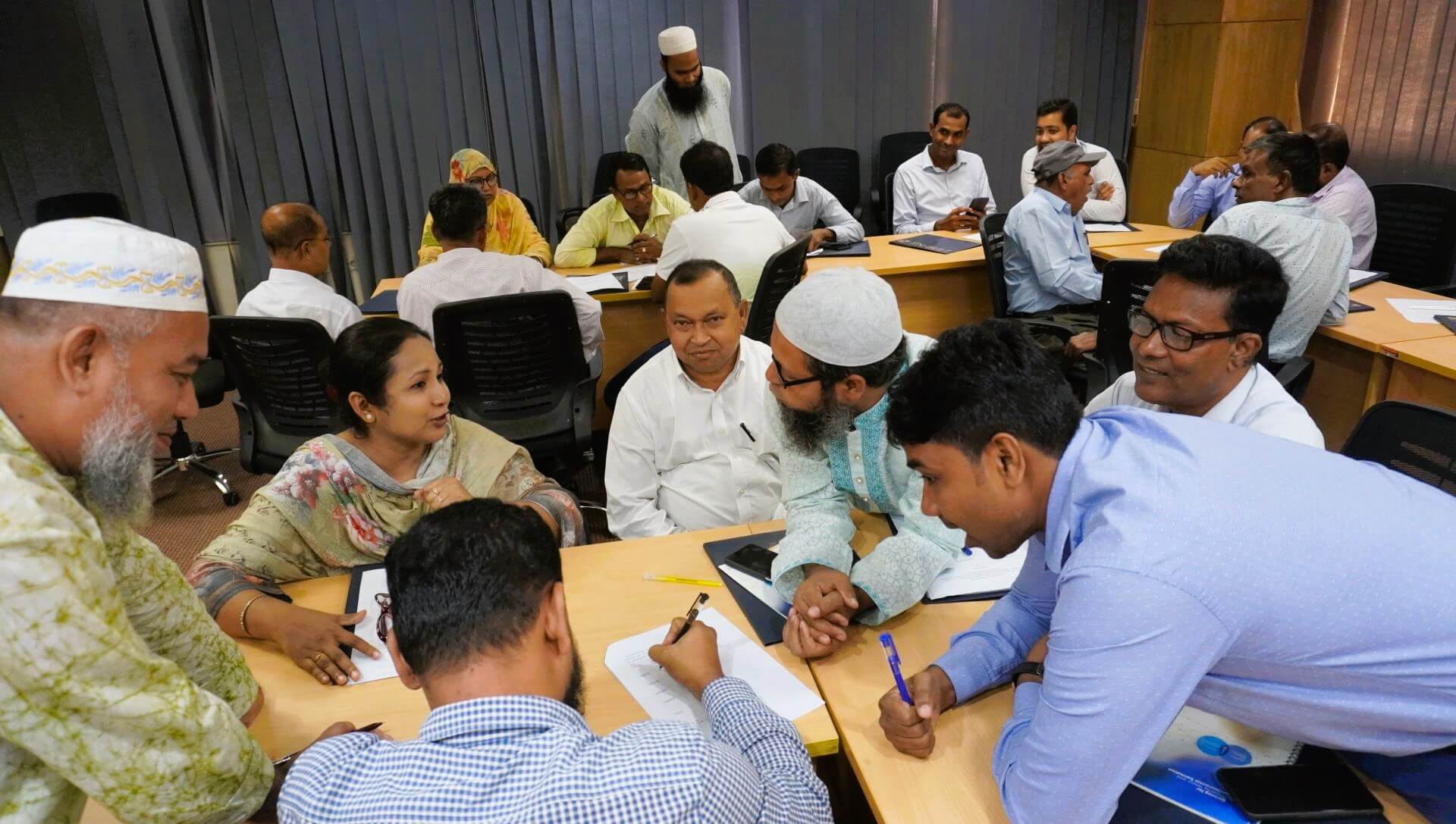
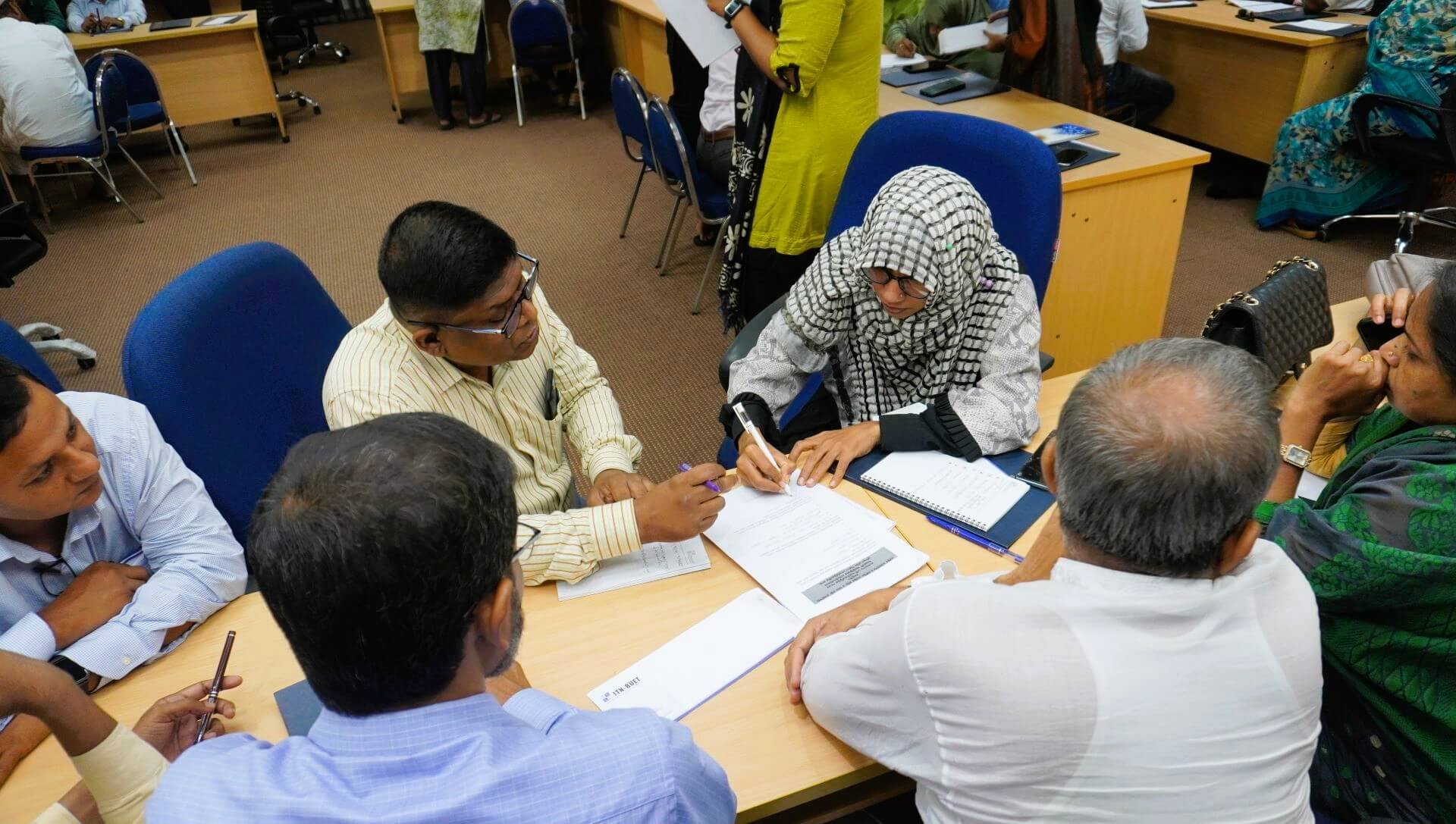
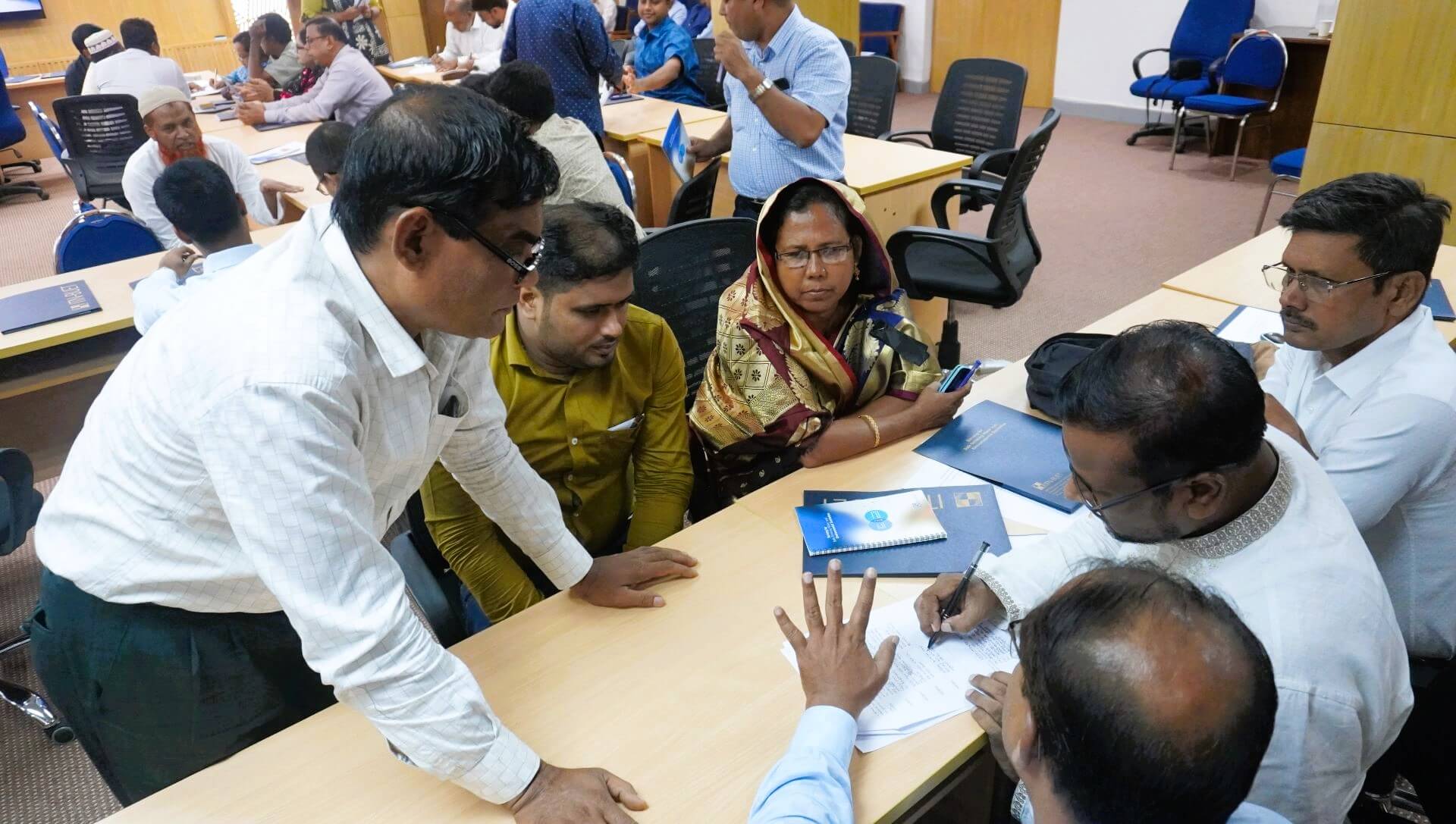
The mayor of Patuakhali Paurashava, Mr. Mohiuddin Ahmed, emphasized the importance of resource efficiency and avoiding redundancy of efforts. He stressed the need to assess available resources, pinpoint gaps, and address challenges strategically to achieve the goals.
Dignitaries present at the event included Mr. Shafiqul Hassan, Project Director and Co-Chair of the CWIS-FSM Support Cell, Mr. S M Shamim Ahmed, Project Director of the Inclusive and Integrated Sanitation and Hygiene project in the ten priority cities, and Mr. Alauddin Ahmed, the Project Manager of ITN-BUET. Their presence as guests added value to the workshop’s proceedings.
Social Development Expert of the CWIS-FSM Support Cell of DPHE, Mr. Sanjoy Mukherjee, guided the participatory assessment. He effectively led discussions around assessing training needs for building the CWIS capacities within the Paurashavas. As a result of these discussions, the participants identified Focused Group Discussion (FGD) focal persons for the training needs assessment of sanitation workers and outlined the subsequent steps. The event participants will assess the training needs and share the outcomes with the ITN-BUET in the coming days.



